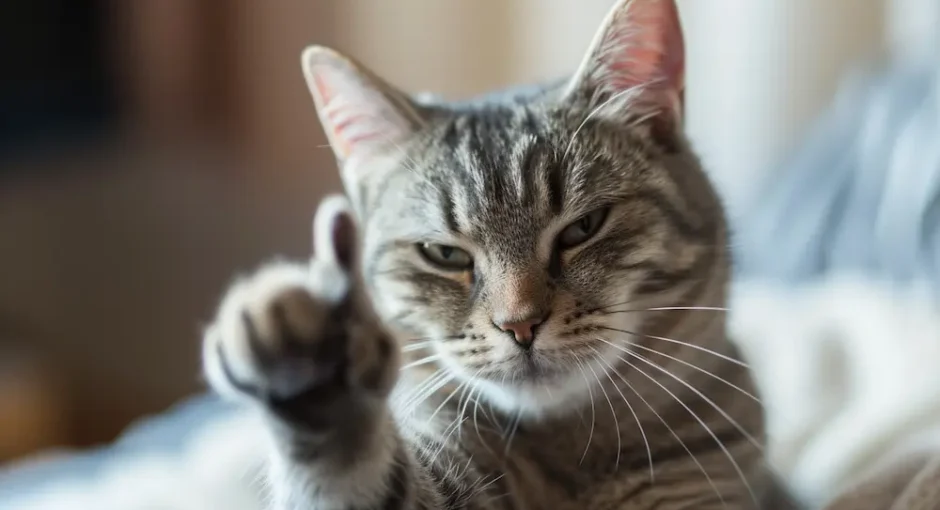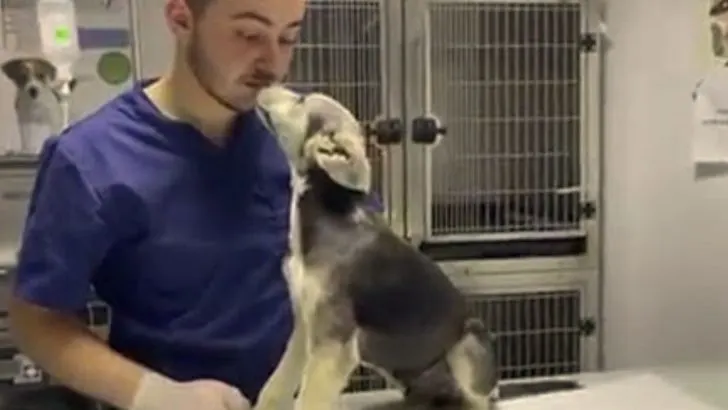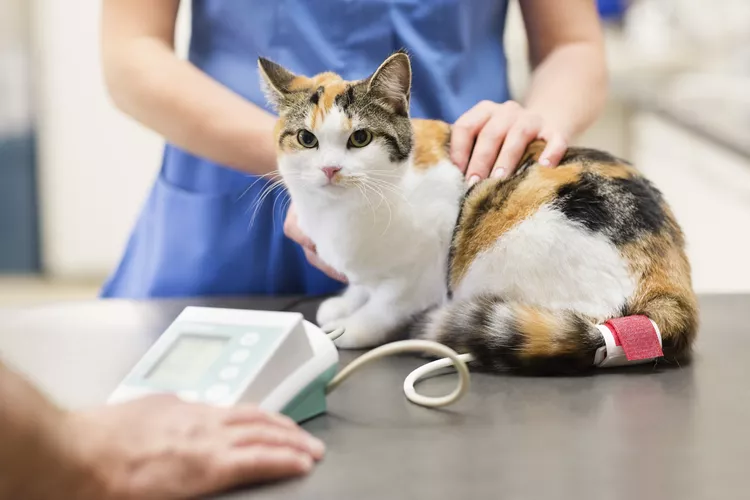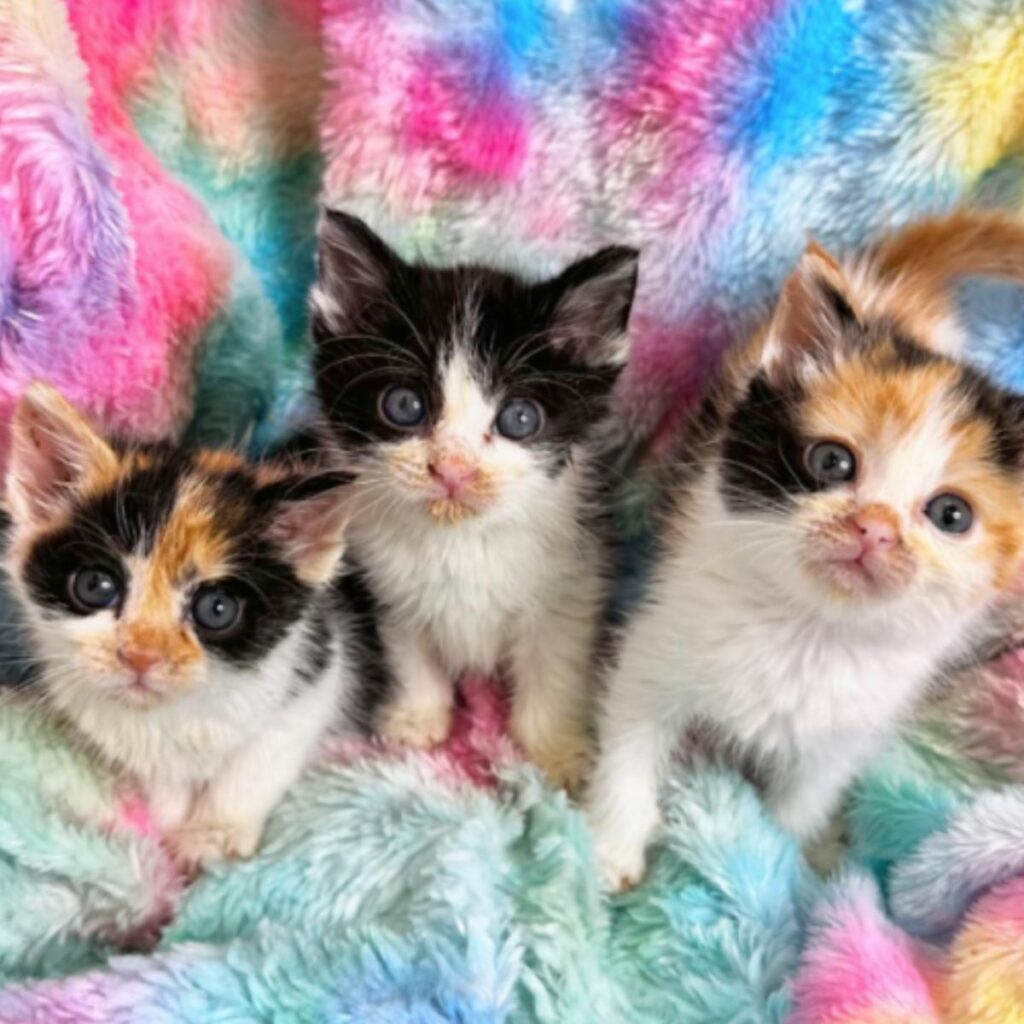If you’ve noticed your feline friend biting his or her nails more often than usual, you might be wondering whether something is wrong and you need to somehow fix or prevent this behavior.
In this post, we’ll look at the reasons why cats bite their nails, when it’s time to take your cat to the vet, and several pieces of advice that can help you deal with this in the future.
Why Do Cats Bite Their Nails?
So, what makes cats exhibit this behavior? There are three main causes:
- Grooming
- Behavioral issues
- Medical problems
Grooming
Every cat will end up biting her nails at one point, during the natural grooming process. Claws are made from several different layers that grow from the inside out.
As the outer (most distant) layer becomes more fragile, it can be detached more easily as your cat cleans herself in-between her toes or actually chews her claws.
Behavioral Problems
You probably know that humans bite their nails, too, especially when they feel stressed. So why wouldn’t this be true in cats, too?
This type of behavior is called displacement grooming. In this case, a stressed or anxious cat will use nail biting as a method of calming herself. While the grooming is, in most cases, directed toward the coat, not the nails, it can still involve them sometime.
In dogs, there is a similar problem that vets and pet parents have to deal with – atopic dermatitis. Dogs that get bored or are constantly stressed or anxious will lick their front paws to the point that they create injuries that can get infected.
What you should know is that excessive nail biting in cats is far more common in those that have been exposed to stress-inducing factors. Whether that is noise, an unknown person entering their living environment, work done around the house, or even a move to another home, these events can seriously take a toll on your feline buddy.
Medical Problems
Nail biting and chewing is a lot more common in cats that have pemphigus or ringworm. So, if your feline friend has been diagnosed with one of these two conditions, it might be a good idea to keep an eye on his or her nail biting behavior.
Even if the cause is behavioral, if you take your cat to the vet and there is no way of you fixing this issue, the vet could prescribe medication. Cats can get anti-depressants or inhibitors, in this case, with the later being similar to what humans take (Prozac or Zoloft).
How To Stop It
You can’t deal with your cat’s grooming habits, because all cats have to groom their bodies in order for them to feel at ease. It is so essential for them that it’s actually one of the behaviors that vets use to tell whether something is seriously wrong with a cat or not.
As you know, cats are great when it comes to hiding illness, but changes in their grooming behavior can be a clue that something is not right.
If the cause of the nail biting and chewing is behavioral, there are some things that you can do. You can create a routine for your feline companion so that they know what to expect. You can also make sure that, if you have several cats, they all have plenty of resources and enough litter boxes, as well as entertainment opportunities during the day when you’re out of the house.
Investing in a cat tree is another suggestion that we can give you in this situation, as it helps cats feel a little more comfortable. Most cats love being above everything else, as it gives them a sense of security.

Elevate your cat’s world with our Premium Cat Tree—a stylish blend of comfort, durability, and playfulness. Crafted from eco-friendly materials, reinforced with natural sisal scratchers, and featuring multiple levels for climbing and lounging, this cat tree is a cozy haven for your feline friend. With easy assembly, cute modern designs, and a sturdy build, this cat tree provides a perfect balance of aesthetics and practicality, ensuring your cat enjoys a delightful, stable, and engaging space.
When Should You Go To The Vet?
You can go to the vet whenever you’re feeling unsure about whether this is a physiological (normal) behavior or it turned into something pathological.
A cat that bites her nails too much will most likely irritate the skin between her toes, and in some cases, you might even notice bleeding. If this happens, go to the vet as soon as possible as this means that your cat has an entry way for microorganisms that could cause an infection.
Due to the constant licking and chewing in that area, some cats might experience hair loss in their paws. In all of these situations, seeking out veterinary assistance is the right way of going about things.







